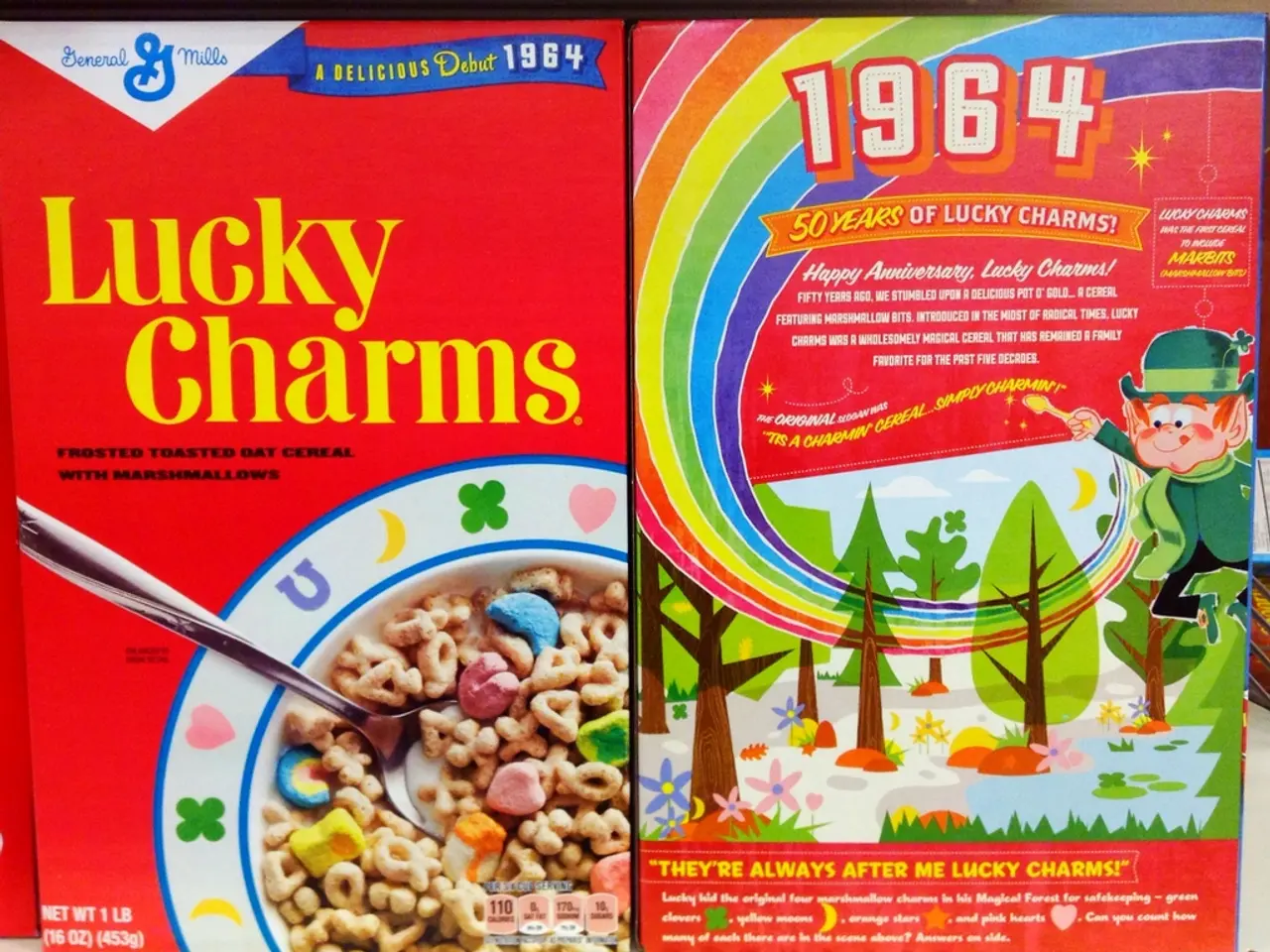Five nutritious cereal choices and their respective advantages
In the morning, starting the day with a nutritious breakfast is essential. Here's a guide to some popular breakfast cereals and grains, their nutritional benefits, and tips for making healthier choices.
Breakfast cereals, such as oats or wheat, are a convenient and nutritious option. They are rich in fibre, energy, and often contain added vitamins. However, it's important to check the ingredients label for added sugars or sweetened dried fruits.
For instance, a serving of bite-size wheat biscuits with no added sugar contains 161 calories, 33.2g carbohydrates, 5.85g fibre, 5.35g protein, and 0.12g sugars. This cereal also contains minerals like potassium, phosphorous, and magnesium. Unsweetened oats, shredded wheat, and bran flakes all contain a similarly low amount of calories per serving.
Muesli, typically consisting of uncooked oats, other whole grains, dried fruits, and nuts, can be a healthy choice if you watch out for added sugars. The healthiest mueslis tend to contain whole grains, low or no added sugars, and a range of vitamins and minerals.
Oats, in particular, are a source of several important minerals, including magnesium, manganese, phosphorous, copper, iron, and zinc. A serving of dry whole steel cut oats provides 152 calories, 27.9g of carbohydrates, 5g of protein, 4.8g of fibre, and 2.3g of fat.
For people with high blood sugar, steel cut or rolled oats may be a better choice than instant oats. Brown rice is another whole grain breakfast option that has a lower glycemic index than white rice. A serving of cooked brown rice provides around 124 calories, 25.9g carbohydrates, 2.45g protein, 1.12g fat, and 1g fibre.
It's important to note that rice does not contain as much fibre or protein as some other breakfast options. To make it a more balanced dish, be sure to add other ingredients like fruits, vegetables, or proteins.
The nonprofit Diabetes UK recommends whole grain cereals high in fibre but low in sugar, especially shredded wheat and wheat biscuits with no added sugar, as good options for those with diabetes. A 2021 study suggests that steel cut or rolled oats have a reduced effect on blood sugar and insulin levels in comparison to instant oats.
Moreover, the consumption of whole wheat foods is associated with lower rates of type 2 diabetes, cardiovascular disease, and cancer. A 2023 review found that the fibre in oats, known as beta-glucan, can lower cholesterol levels when consumed regularly.
In addition to traditional cereals, there are also healthier alternatives like sugar-free granola and low carbohydrate granola products containing more nuts than oats. Important additives that can enhance health in muesli preparation include germinated grains like germinated oat and buckwheat, nuts such as almonds and macadamia, and seeds like sunflower seeds. Protein-rich ingredients like soy protein and protein powders can support protein needs, while bioactive supplements like vitamin D, vitamin K, Coenzyme Q10, and antioxidants (e.g., astaxanthin, resveratrol) may also be added to boost nutritional value.
In conclusion, making informed choices about breakfast cereals and grains can contribute significantly to maintaining a healthy diet. Always remember to check the ingredients label for added sugars and opt for whole grain, low sugar options whenever possible.
Read also:
- Nightly sweat episodes linked to GERD: Crucial insights explained
- Antitussives: List of Examples, Functions, Adverse Reactions, and Additional Details
- Asthma Diagnosis: Exploring FeNO Tests and Related Treatments
- Unfortunate Financial Disarray for a Family from California After an Expensive Emergency Room Visit with Their Burned Infant








